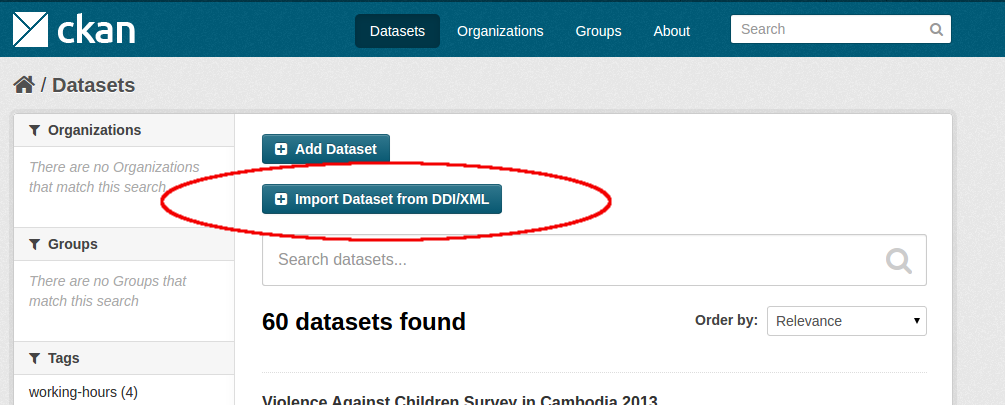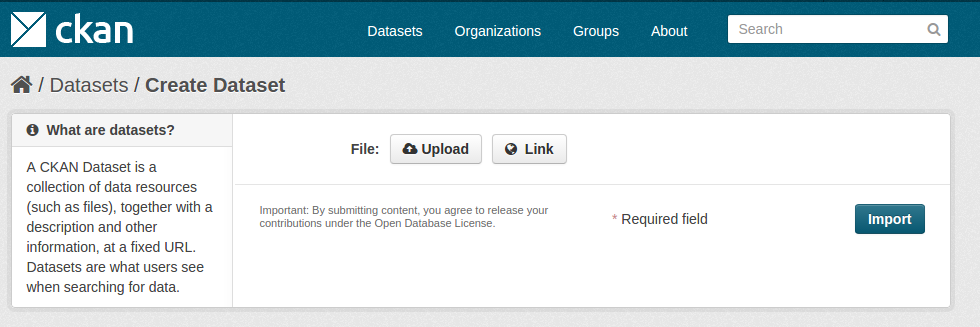The Data Documentation Initiative (DDI) is an international standard available at ddialliance.org
NOTE: This is a heavily customized version for a specific project. If you want more generic support check out the upstream repo: https://github.com/liip/ckanext-ddi
DDI extension for CKAN.
Features:
Requirement: This extensions runs on CKAN 2.8 or higher.
Use pip to install this plugin. This example installs it in /home/www-data
source /home/www-data/pyenv/bin/activate
pip install -e git+https://github.com/liip/ckanext-ddi.git#egg=ckanext-ddi --src /home/www-data
cd /home/www-data/ckanext-ddi
pip install -r requirements.txt
python setup.py developMake sure to add ddi_import to ckan.plugins in your config file.
Make sure
are installed as well.
Available options are:
ckanext.ddi.default_license = CC0-1.0
ckanext.ddi.allow_duplicates = True
ckanext.ddi.override_datasets = False
ckanext.ddi.default_country_code = UNSPECIFIEDThe config_file is simply the path to the DDI-specific configuration of this extension (see below).
The default_license allows a user to configure a license that is used for all DDI imports, if the license is not specified explicitly.
The allow_duplicates option is used to determine, if duplicate datasets are allowed or not. Duplicates are determined by the unique id_number attribute (defaults to False).
With override_datasets you can specify, if you import a dataset that already exists, if a new dataset should be created or if the existing one should be overridden (defaults to False).
The default_country_code option will force all datasets to have a country code (defaults to UNSPECIFIED because UNHCR extension use it).
If you are logged in and you have the appropriate permissions, you find a new button "Import Dataset from DDI/XML" on the dataset page.
This buttons leads you to an import page, where a DDI XML can either be uploaded or specified as URL.
This CKAN extensions uses flake8 to ensure basic code quality.
You can add a pre-commit hook when you have installed flake8:
flake8 --install-hookTravis CI is used to check the code for all PRs.
This module was developed with support from the World Bank to provide a solution for National Statistical Offices (NSOs) that need to publish data on CKAN platforms.

